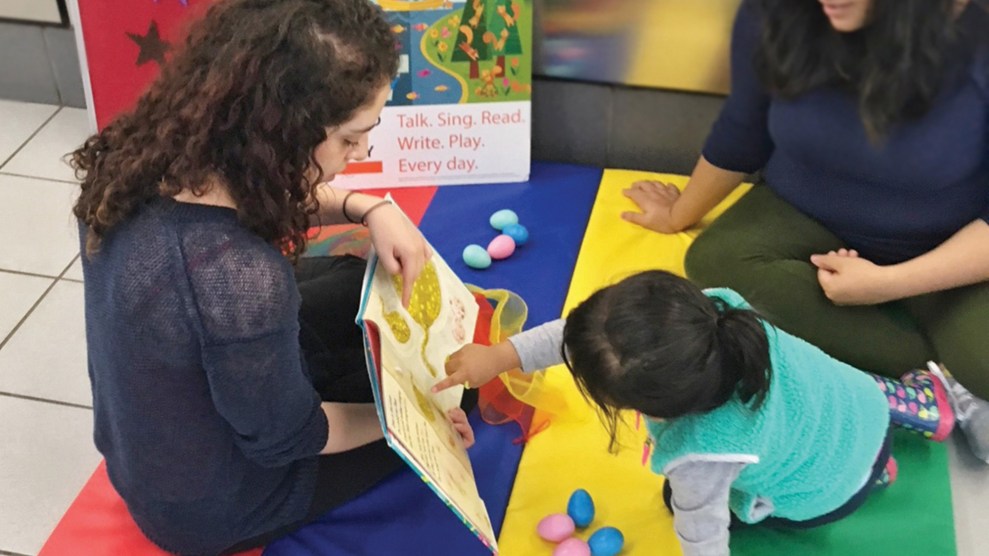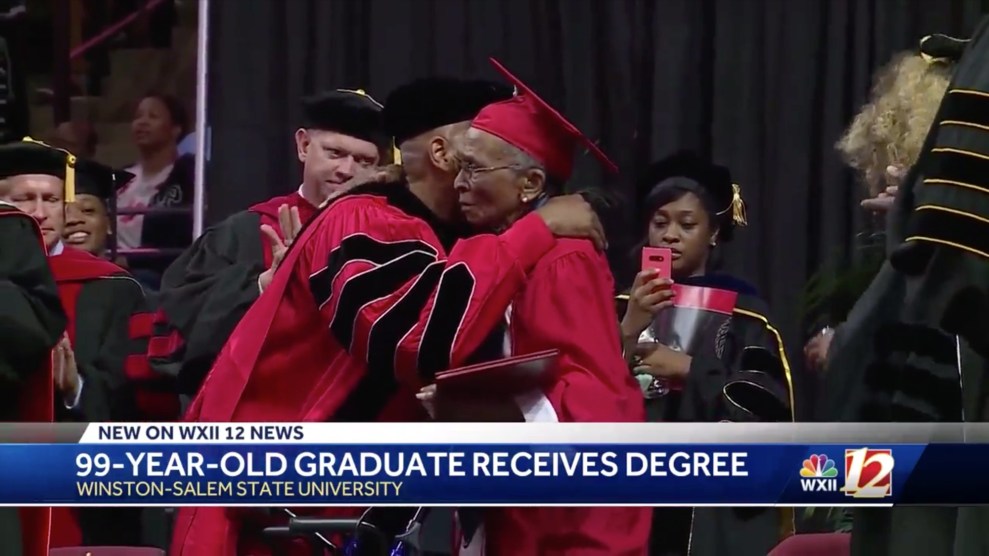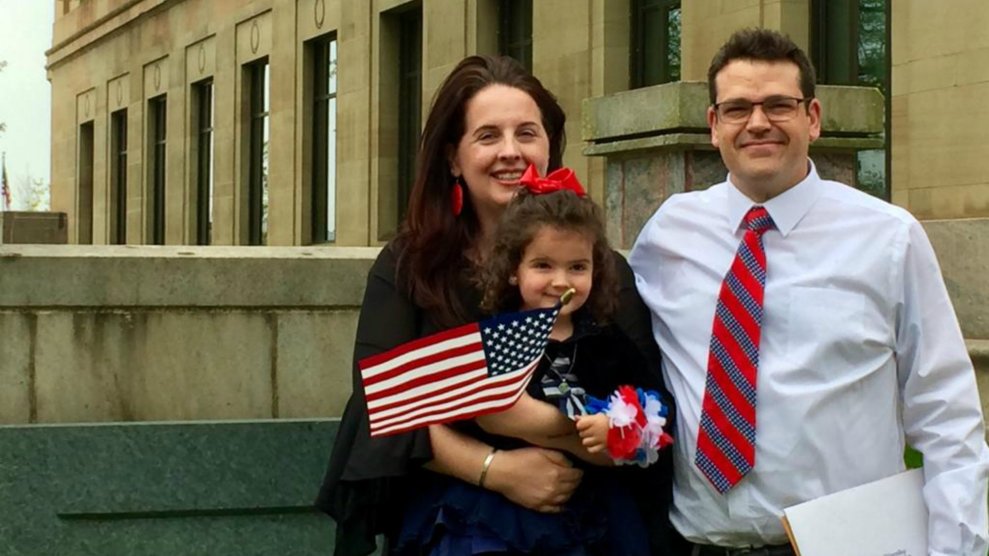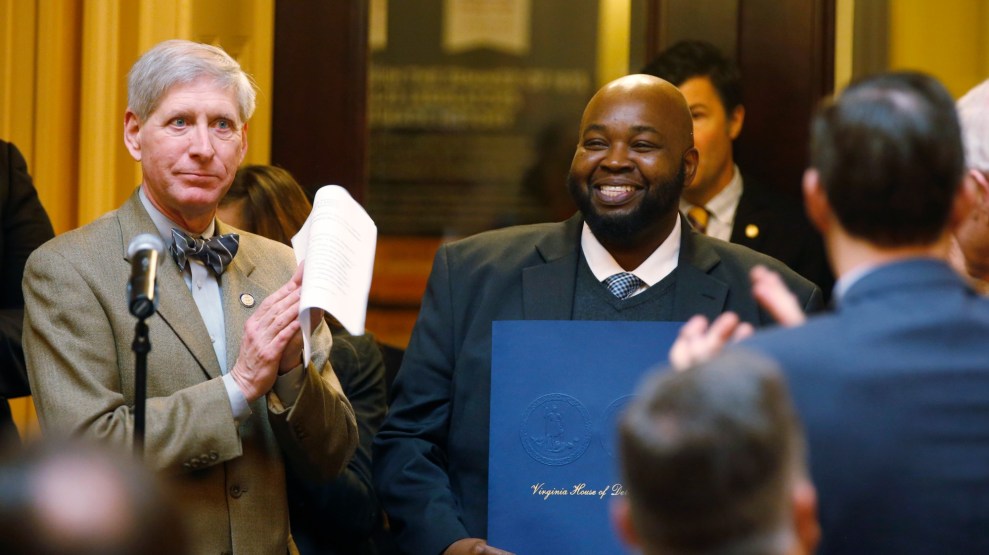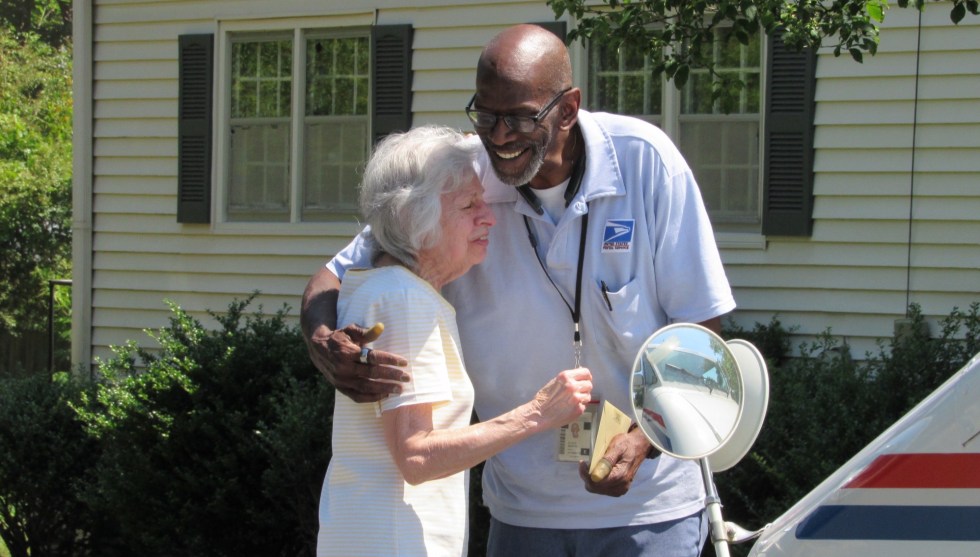
Floyd Martin on his last mail run in Marietta, Georgia.Jennifer Brett/Atlanta Journal-Constitution.
Welcome to Recharge, a weekly newsletter full of stories that will energize your inner hellraiser. See more editions and sign up here.
When Floyd Martin set out for his final postal run in Marietta, Georgia, he didn’t expect mailboxes decorated in his honor. Or children and families and family pets waiting to say goodbye to him. Or, at the end of his route, a block party with hundreds of people from the community celebrating his retirement.
Martin, 61, had delivered mail to the Marietta neighborhood for nearly 35 years. He often went above and beyond, carrying newspapers to the steps for elderly residents, stopping in for a moment to talk to new moms juggling diapers and laundry, and handing out treats to the dogs and lollipops to the kids.
Standing at the surprise celebration, Martin said he was filled with joy and gratitude, the Atlanta Journal-Constitution reported.
“My parents died. My fur babies died. I lost most of my friends,” Martin told the assembled neighbors. “You were there when I needed you, even if you didn’t know it. Thank you for caring about me.”
Martin decided to retire after enduring the heat of last summer. His dream has always been to go on vacation to Hawaii. After his story went viral on Twitter, hundreds of people helped chip in for some of the costs. Delta even offered him a free ticket.
Families urged him not to leave their community behind, to return for an annual food festival and other events.
Not to worry.
“I’ll be back,” Martin told them. “Y’all are my life.”
Thanks to reader Liva Judic for the story suggestion.
Here are some more Recharge stories to get you through the week:
- A community rallies. When a Virginia restaurant refused to serve White House Press Secretary Sarah Huckabee Sanders, it received arson threats and postcards smeared with excrement. A year later, the 26-seat Red Hen restaurant is thriving, and co-owner Stephanie Wilkinson is grateful to the community and customers who stood by her. “For every hateful message, there was one of gratitude,” Wilkinson said. “What’s more, for every wish that our business die a painful death, there was a dollar bill or a generous check or an order for a gift certificate.” Her takeaway? “Our haters may have believed that there were more of ‘them’ than of ‘us,’ but it turns out we have more than enough to keep us cooking. And to everyone who might be fearful about taking a stand, I say don’t be.” (Washington Post)
- The big swerve. After his wife died, Dr. Peter Glatz gave up his longtime dental practice and decided follow his passion for cooking. He staged for a Chicago restaurateur and now, at 65, is working 12-hour shifts as a line chef at one of America’s top new restaurants, Nonesuch, in Oklahoma City. It was a big move, but one he needed, Glatz said. “Retiring and playing golf all day has zero appeal to me,” he says. “I don’t know if it’s a restless spirit, but I’m just someone who needs to keep creating and feeding people.” Thanks to Vicki Boykis for the story suggestion. (Bon Appétit)
- Ghostwriter no more. Susan Sontag is known as a feminist icon, a fierce intellectual, and a champion of the oppressed, but she had to subsume one of her early successes. Only now, thanks to a new biography, does the world know the extent of her sacrifice. Married at 17, just 10 days after attending one of sociologist Philip Rieff’s lectures, the young Sontag essentially wrote Rieff’s masterwork, Freud: The Mind of the Moralist, but never received credit. Biographer Benjamin Moser, based on new material and interviews, argues that while Rieff and Sontag lived in Cambridge, Massachusetts, “Susan was spending every afternoon rewriting the whole thing from scratch.” In 1958, her friend Jacob Taubes chastised her for relinquishing rights to the Freud biography to her husband, whom she was divorcing. Why did the assertive Sontag surrender? As part of a deal to maintain custody of their son. “It was a blood sacrifice,” said Moser, author of the upcoming Sontag: Her Life and Work. (The Guardian)
- Laundromats, Part II. After last week’s newsletter story about an effort to bring libraries to laundromats, two readers on Twitter noted geographical and economic differences in their experiences—and reminded us that laundromats can be places for community. “I spent many, many hours in Anchorage laundromats as a newlywed,” wrote Sheila Hagar. “I hitchhiked there with pillowcases of clothing. The owner, Les, became a treasured source of community information and wisdom for my husband and I. Doing laundry became going home.” Another reader, Heather Bryant, said her local laundromat in Alaska was paired with a general store and a restaurant; it also featured a community bulletin board. “Going to the laundromat, which is also where many shower, is part of the routine, not ‘soul crushing.’” Thanks, as always, for your notes and suggestions for Recharge.


